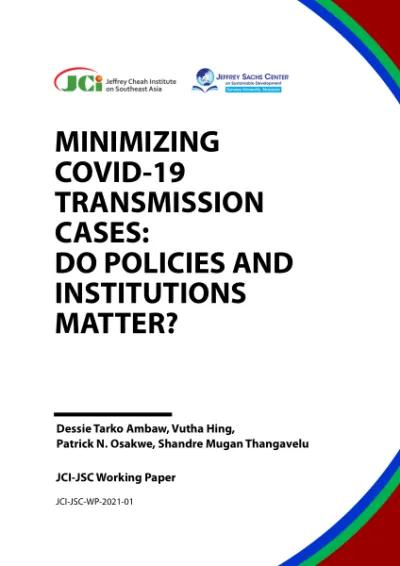
JCI-JSC-WP-2021-01: Minimizing COVID-19 Transmission Cases: Do Policies and Institutions Matter?
Publication date: October 2021 | Length of paper: 30 pages | ISBN: TBC
This paper examines the effects of institutional factors and government policy responses on COVID-19 infection cases. It applies the Random Effects and GMM estimation techniques to panel data to explore the relationship between COVID-19 cases on the one hand and institutions and government policy responses on the other. The paper finds that the nature and timing of policy responses matter and that institutions play a crucial role in explaining observed infection cases across countries. The results also indicate that high population density and previous experience with infectious diseases are important factors in explaining infection cases across countries. One of the policy implications of our findings is the importance of timely policy intervention at the national level in reducing infection cases. The findings also underscore the need to enhance coherence between health measures and socio-economic policies.
Key words: COVID-19 pandemic, Infection, GMM estimation, Institutions, Policies
JEL Classification: E00, I15, I18, O43
Author(s)
Dessie Tarko Ambaw
Institute for International Trade, University of Adelaide
Vutha Hing
Institute for International Trade, University of Adelaide
Patrick Osakwe
UNCTAD
Head, Trade and Poverty Branch
The JCI-JSC Working Paper series is published to disseminate preliminary research findings and stimulate intellectual discourse on wide-ranging public policy issues, ranging from security to sustainability. The views expressed herein are those of the author(s) and do not necessarily reflect the views of the Jeffrey Cheah Institute on Southeast Asia and the Jeffrey Sachs Center on Sustainable Development.



